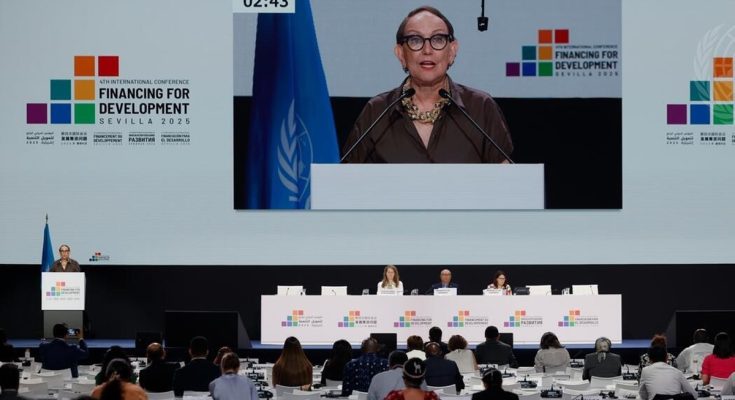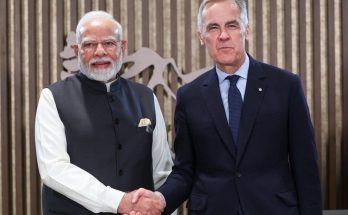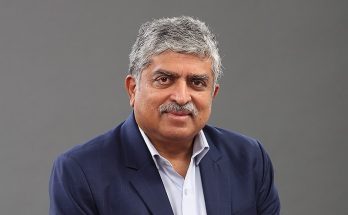IBNS-CMEDIA: The 4th International Conference on Financing for Development (FfD4) concluded on 3 July in Sevilla, Spain, with more than 15,000 participants and a renewed global resolve to mobilize finance at scale, put people first and reform the international financial architecture.
Its outcome document, the Sevilla Commitment or Compromiso de Sevilla – endorsed by over 190 nations – lays out a bold vision.
But the path forward depends on execution. As UN Trade and Development (UNCTAD) Secretary-General Rebeca Grynspan said in her remarks: “The smartest investment we can make is in our collective future. The choice is ours. And the time to choose is now.”
A $4 trillion gap: Time for a development reset
In a world of low growth, rising debt, falling investment and shrinking aid, the promise of the 2030 Agenda is at risk. Developing countries now face a $4 trillion annual financing gap for sustainable development.
3.4 billion people live in countries that spend more on debt interest payments than on health or education.
To change course, the conference launched the Sevilla Platform for Action, putting forward over 130 initiatives to accelerate the implementation of the Sevilla Commitment.
These include three key areas:
- A global investment push to close the funding gap.
- A serious and long overdue response to the debt crisis.
- A shift in global governance to give developing countries a greater voice.
UN Trade and Development: Driving solutions on the ground
UN Trade and Development, in collaboration with global partners, will co-lead several initiatives under the Sevilla Platform for Action, namely:
- A community of practice on South-South cooperation data, helping countries enhance collection, analysis, governance and the sharing of data to strengthen mutual development support.
- A community of practice to track the hidden, using data and digital tools to combat illicit financial flows and unlock domestic resources for public investment.
- A digital infrastructure investment catalyzer, developed with the International Telecommunication Union, multilateral development banks, investors and the private sector, to help close the digital divide by enabling collective financing, data sharing and capacity building.
In partnership with the Organisation for Economic Co-operation and Development and others, UN Trade and Development also launched a Global Alliance for Beyond GDP, which aims to build new metrics that go beyond economic output to capture the distribution of wealth, social resilience and environmental sustainability.
The organization also serves as co-secretariat for the UN Secretary-General’s high-level expert group that will develop recommendations for discussion at the 80th session of the General Assembly in 2026.
Sevilla Forum on Debt
The conference also unveiled a new “Sevilla Forum on Debt”, a new space for countries to coordinate debt management and restructuring strategies. A UN entity will serve as its secretariat, and Spain – the host of FfD4 – will support the UN Secretary-General in consultation with member states and stakeholders to operationalize the forum.
The Sevilla Commitment recognizes “the imperative to support the establishment of borrower led forums that enable countries to share experiences, strategies, and good practices, and to promote responsible borrowing and lending standards”.
Looking ahead: Trust, solidarity and global reform
“Investing in global solidarity is about building a world in which no one is left behind,” said Secretary-General Grynspan, looking ahead to the 16th UN Conference on Trade and Development (UNCTAD16), set for October under the theme “Shaping the future: Driving economic transformation for equitable, inclusive and sustainable development”.
“To do this we need to think about development in an integrated way where trade, investment, finance and technology reinforce each other as the Compromiso de Sevilla states,” Ms Grynspan added.
Delivering on this vision will require making trade, finance and investment systems more development centric. In particular, the international financial architecture must be updated to reflect today’s realities and give developing countries fairer access and representation.
Trade remains the strongest link between local economies and global growth. UN Trade and Development continues to advocate for predictable trade rules, transparent policies and investment strategies to restore confidence and help developing countries build capacity, competitiveness and resilience.
To turn public debt from a burden into a tool for development, the organization calls for fairer mechanisms to lower borrowing costs, enable timely debt restructuring and go beyond the limits of the current G20 Common Framework for Debt Treatment.
It also supports calls in the Sevilla Commitment to triple the lending capacity of multilateral development banks – from $50 billion to $150 billion – and help developing countries boost investment.





